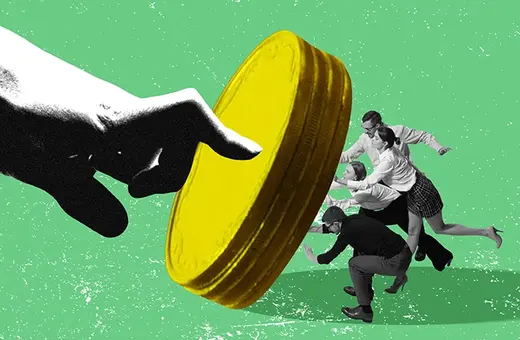Having previously served as International Development Secretary, Hilary Benn is MP for Leeds Central and the Shadow Secretary of State for Communities and Local Government. Here he talks about the problem with ill-thought through aid provision and the responsibility of human beings to look after those less fortunate than themselves.
What do you think the main problem is with aid provision today?
I know from my experience as the International Development Secretary that aid saves lives. It puts children in school; it stops people dying because they’re HIV positive, because we’re able to buy antiretroviral drugs; it improves the life chances of children and it saves lives in emergencies. We give a lot of humanitarian aid when disaster strikes, be that natural disaster, conflict or famine.
But aid is not on its own the answer. If it were, you could write a big enough cheque and you could solve the problem of global poverty. But you need lots of other things as well. You need an absence of conflict in a country – civil war is bad for citizens and for encouraging people to invest. You need good governance. You need to tackle corruption. You need transport links. You need to title land to farmers, because if farmers feel insecure they’re not going to improve the land. So you need all of those other things as well.
We also need to give aid in a way which respects where countries are coming from. We need to recognise that there are politicians and officials who’ve got things they want to do – they have a plan for getting their kids into school, they just lack the cash. The sensible thing to do in those circumstances is to bring the donors together and give the support in one lump sum so that, for example a country can get more children into school.
Otherwise, you get the French turning up to say, “we'll build that school”, and the Brits saying, “and we'll do that school over there”, with the Germans saying, “we'll buy the textbooks.” That's a much more inefficient way to go about things and it also means ministers spend a lot of time with donors when they should be spending time delivering education to their own people.
Can you think of any reasons why aid might be seen to do more harm than good?
If you give aid in the wrong way, it can lead to the wrong sorts of outcomes. I have an example from my own experience. Visiting Ethiopia a decade ago, I came to a village in a remote community which had a maternity seat with some equipment and a table and stirrups in a building. The donor had provided those things and then clearly gone away and said: “great, we’ve brought some modern equipment to this part of rural Ethiopia.” But the equipment had never, ever been used. It was left to rust because the village had no doctors and no maternity staff. If you got into difficulty during your pregnancy, there was a bus once a week to the nearest hospital. If you missed the bus and couldn't afford to pay for a motorbike, you went without help.
That’s a classic example of donors not thinking things through. You want officials from the country to say: “that’s not a sensible thing to do because we’ve got no money to employ a doctor or midwife in that village, so please don’t do that, please do something else!”





















Join the conversation